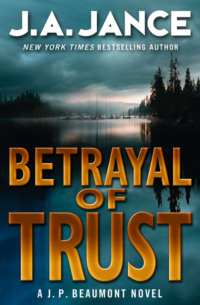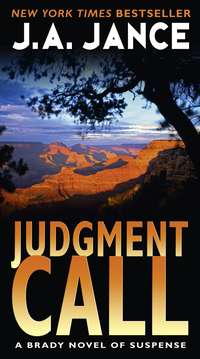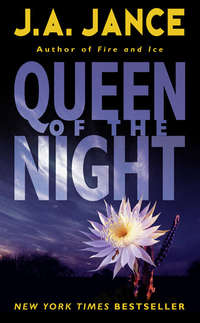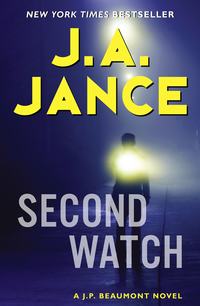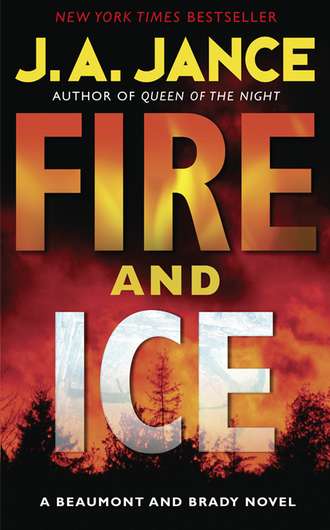
Полная версия
Fire and Ice
“Yes,” I told him. “Our plane leaves here bright and early. We should be at our desks by one.”
When Mel had broached the Disneyland idea, she had wanted us to pull off this major family-style event while, at the same time, having as little impact as possible—one and a half day’s worth—on our accumulated vacation time. We had flown down on Thursday after work and were due back Monday at one.
On my own, I’ve never been big on vacations of any kind. Unused vacation days have slipped through my fingers time and again without my really noticing or caring, but Mel Soames is another kind of person altogether. She has her heart set on our taking a road trip this summer. She wants to cross the border into BC, head east over the Canadian Rockies and then come back to Seattle by way of Yellowstone and Glacier. This sounds like way too much scenery for me, but she’s the woman in my life and I want to keep her happy, so a-driving we will go.
“Mel can go to the office,” Ross said, “but not you. I want you in Ellensburg at the earliest possible moment.”
If you leave the Seattle area driving east on I-90, Ellensburg is the second stopping-off place after you cross the Cascades. First there’s Cle Elum and next Ellensburg. Neither of them strikes me as much of a garden spot.
“Why would I want to go to Ellensburg?” I asked.
“To be there when the Kittitas M.E. does an autopsy. Friday afternoon some heavy-equipment operator was out snowplowing a national forest road over by Lake Kachess where he ended up digging up more than he bargained for. This is number six.”
I didn’t have to ask number six what—I already knew. For the past two months S.H.I.T. had been working on the murders of several young Hispanic women whose charred remains had been found at various dump sites scattered all over western Washington. So far none of them had been identified. As far as we could tell, none of our victims had been reported missing. We’d pretty well decided that our dead girls were probably involved in prostitution, but until we managed to identify one of them and could start making connections, it was going to be damnably difficult to figure out who had killed them.
These days it’s routine for the dental records of missing persons to be entered into a national missing persons database. That wasn’t possible with our current set of victims. None of them had teeth. None of them! And the teeth in question hadn’t been lost to poor dental hygiene, either. They had been forcibly removed. As in yanked out by the roots!
“Same MO?” I asked.
“Pretty much except for the fact that this one seems to have her teeth,” Ross said. “So either we have a different doer or the guy ran out of time. This victim was wrapped in a tarp and set on fire just like the others. The body was found late Friday afternoon. It took until Saturday morning for the Kittitas County Sheriff’s Department to retrieve the remains. Unfortunately, their M.E. has been out of town at a conference, so that has slowed down the process. They put the remains on ice until she returns and expect the autopsy to happen sometime tomorrow afternoon. That’s where you come in. I want you there when it happens in case there’s some detail that we know about that the locals might miss.”
“Our plane’s due to depart at ten-twenty,” I told him.
“That’ll be cutting it close then,” Ross said. “God only knows how long it’ll take for you to get your luggage once you get here.”
Thanks to a legacy from Anne Corley, Mel and I had flown down to California on a private jet. All we’d have to do was step off the plane and wait for the luggage to be loaded into our waiting car before we drove it off the tarmac, but rubbing my boss’s nose in that seemed like a bad idea.
“I’ll make it,” I said. “I’ll drop Mel off at the condo to pick up the other car and then I’ll head out.”
“All right,” Ross said. “Be there as soon as you can.”
“Do you have a number for the Kittitas M.E.’s office?” I asked.
“Sure. Can you take it down?”
I had no intention of telling him that I was flat on my back in the first-aid station and I wasn’t about to ask the nurse to lend me a pen or pencil.
“Can you text it to me?” I asked.
This was something coming from someone who had come to twenty-first-century technology kicking and screaming all the way. I’m surprised I wasn’t struck by lightning on the spot, but that’s what comes of having Generation X progeny. I had learned about text messaging the hard way—because my kids, Kelly and Scott, had insisted on it.
“Sure,” Ross said. “I’ll have Katie send it over to you.”
Katie Dunn was Ross’s Gen X secretary. Knowing Ross is even more of a wireless troglodyte than I am made me feel some better—more with it, as we used to say back in the day.
I had just stuffed the phone back into my pocket when the nurse led Kelly into the room.
“How are you?” she asked, concern written on her face. “Mel told us what happened and that you needed to take it easy for a while. Are you feeling any better?”
I swung my feet off the side of the bed and sat up slowly.
“Take it easy,” the nurse advised.
But the nap had done the trick. I was definitely feeling better. “I’m fine,” I said. “One hundred percent.”
“Mel went with Jeremy. He’s taking the kids back to the hotel,” Kelly explained. “She’ll help get them fed and make sure the babysitter arrangements hold up. If you’re still feeling up to having that dinner, that is.”
That was what Mel had told Kelly, of course. And that’s what she was doing, but only up to a point. The reasons she was doing those things were a whole lot murkier—to Kelly, at least, if not to me.
Kelly and I haven’t always been on the best of terms. In fact, we’ve usually not been on the best of terms. She had run away from home prior to high school graduation and managed to get herself knocked up. Her shotgun wedding had ended up being unavoidably delayed, so Kayla had arrived on the scene before her parents had ever tied the knot. I have always thought most of this Kelly-based uproar is deliberate.
Mel takes the position that it’s more complex than that—both conscious and not. She thinks Kelly’s ongoing rebellion has been a way for her to get back at her parents—at both Karen and me. Although I didn’t know about it at the time, Kelly was mad as hell at her mother for coming down with cancer and dying while Kelly was still in her teens, and she was mad as hell at me for having been drunk most of the time while she was growing up. And now she’s apparently mad at me for not being drunk. When it comes to kids, sometimes you just can’t win.
So Mel had designed this whole Disneyland adventure, complete with inviting my son and daughter-in-law, Scott and Cherisse, along for the ride, for no other reason than to see if she could help smooth out some of the emotional wrinkles between Kelly and me. So far so good. As far as I could tell, everyone seemed to be having a good time. There had been no cross words, at least none I had heard. And I suspected that was also why Mel had sent Kelly to drag me out of the infirmary.
“I should have gone on the teacups with her,” Kelly said as we walked toward the monorail. “Jeremy won’t set foot on one of those on a bet, but rides like that don’t bother me. They never have. And Kayla loves them so much. She rode the teacups three more times after you left. She didn’t want to ride on anything else.”
I stopped cold. Kelly turned back to look at me. “Are you all right?” she asked.
It took me a minute to figure out what to say. I now knew something about Kelly and her mother and her daughter, and it was something she didn’t know about me. As I said already, I was mostly AWOL when Kelly and Scott were little—drinking and/or working. Karen was the one who took them to soccer and T-ball and movies. She was also the one who “did the Puyallup” with them each fall. When it’s time for the Western Washington State Fair each September, that’s what they used to call it—“doing the Puyallup.” It was Karen instead of me who walked them through the displays of farm animals and baked goods; who taught them to love eating cotton candy and elephant ears; and who took them for rides on the midway.
“You’re just like your mother,” I said, over the lump that rose suddenly in my throat and made it difficult to speak. “And Kayla’s just like you.”
“What’s that supposed to mean?” Kelly asked. She sounded angry and defensive. It was so like her to take offense and to assume that whatever I said was somehow an underhanded criticism.
“Did your mother ever tell you about the first time I took her to the Puyallup?”
“No,” Kelly said. “She never did. Why?”
“She wanted to ride the Tilt-a-Whirl, and I knew if I did that, I’d be sick. Rides like that always make me sick. So I bought the tickets. Your mother and I stood in line, but when it came time to get on, I couldn’t do it. She ended up having to go on the ride with the people who were standing in line behind us. Here I was, supposedly this hotshot young guy with the beautiful girl on his arm, and all I could do was stand there like an idiot and wait for the ride to end and for her to get off. It was one of the most humiliating moments of my life. We never talked about it again afterward, but she never asked me to get on one of those rides again, either.”
Kelly was staring up into my face. She looked so much like her mother right then—was so much like her mother—that it was downright spooky. It turns out DNA is pretty amazing stuff.
“So why did you do it?” she asked.
Now I was lost. Yes, I had been telling Kelly the story, but her question caught me off guard. I didn’t know what “it” she was asking about.
“Do what?” I asked.
“If you already knew it would make you sick, why on earth did you get on the Mad Hatter’s Tea Party with Kayla?”
“I thought maybe I’d grown out of it?” I asked lamely.
Kelly shook her head as if to say I hadn’t yet stumbled on the right answer. “And?” she prompted.
“Because my granddaughter wanted me to?” I added.
The storm clouds that had washed across Kelly’s face vanished. She reached up, grabbed me around the neck, and kissed my cheek.
“Oh, Daddy,” she said with a laugh. “You’re such a dope, but I love you.”
See what I mean about Mel Soames? The woman is a genius.

THE CALL came in just after the morning briefing ended and as Sheriff Joanna Brady was about to tackle that day’s bushel basketful of paperwork.
“Sorry to disturb you,”Larry Kendrick, her lead dispatcher, had said. “We’ve had a call about a possible homicide north of Bowie at a place called Action Trail Adventures.”
“Never heard of it,”Joanna said.
“I’m not surprised. It’s an all-terrain vehicle hot spot. They keep a fairly low profile, probably to avoid coming up against planning and zoning restrictions. I’ve dispatched Detectives Carpenter and Howell to the scene, and I’ve asked Jeannine to send out an Animal Control officer. She has Natalie Wilson coming over from Willcox. She should be on the scene within the next twenty minutes or so.”
Ernie Carpenter was Joanna’s senior homicide detective, a guy who had put in his twenty years and was verging on being ready to pull the plug and put himself out to pasture. Debra Howell had been working homicide for the better part of two years, partnering with Ernie as often as possible as she gradually learned the ropes. Jeannine Phillips, on the other hand, was Joanna’s head of Animal Control. Animal Control had been stuffed into Joanna’s area of responsibility years earlier, supposedly on a temporary basis, which had now turned permanent. Natalie Wilson was Jeannine’s new hire.
“What’s going on?”Joanna asked. “Why an ACO?”
“A concerned citizen called it in. He was out on his ATV when he saw buzzards circling overhead. He went there and saw what he thinks is a body, but he can’t get close enough to tell for sure. There’s a dog there with the victim, and he’s fierce as hell. The dog is keeping the vultures away, but he’s doing the same thing to everyone else, acting like he’s ready to tear them limb from limb. With the dog there, no one has been able to get close enough to the victim to check on him. He looks dead, but maybe he’s not.”
“Any idea what happened to him?”Joanna asked.
“The guy who called it in on his cell phone says it looks like he was run over by something. It could be an accident, but it could be something else, too.”
Five years earlier, when Joanna Brady had first run for office as sheriff of Cochise County, it had been in the aftermath of her first husband’s death. Deputy Andrew Roy Brady had been gunned down by a drug trafficker’s hit man while he himself had been standing for election. People had encouraged Joanna to run in Andy’s place. When she was elected, many people had assumed it was a gesture of sympathy more than anything else. She may have been the daughter of one law enforcement officer and the widow of another, but she had never been a cop herself, and no one really expected that she would be.
Once she took office, Joanna had assumed the administrative duties that came with the office, but she had also set herself the task of becoming a real cop. She had enrolled in and graduated from the same police academy course of training that was required of all her new recruits. She did enough range work to keep her weapons skills at proper levels, and rather than hiding out in her office and behind her desk, she had insisted on going to the scene of every homicide that had occurred on her watch and in her jurisdiction. If this possible homicide turned into a real one, Joanna knew she would go there as well.
“Thanks for keeping me posted, Larry,”she told him. “When you know more details, let me know or tell Ernie to call me.”
As soon as Joanna put down the telephone, she returned to the stack of paperwork—the never-ending stack of paperwork—that was the bane of her existence. It had always been bad, but now it was worse. Her longtime chief deputy and second in command, Frank Montoya, had been wooed away from her department when he was offered the chief of police job in the nearby city of Sierra Vista. She missed him more than she could say.
Frank had been one of her opponents in her original race for sheriff. After winning the election, she had chosen him to serve as one of her two chief deputies. Turning a major opponent into a loyal ally had been a stroke of genius on Joanna’s part. Frank’s attention to detail had been a major asset to her. He had kept an eagle eye on budgetary issues and had handled the complex job of shift scheduling with a casual flair that had made it seem easy. He had also been at the forefront of bringing Joanna’s department into the world of twenty-first-century information/technology.
Joanna had decided against turning the chief deputy search over to a head-hunting search firm. Instead, after several months of deliberation, she had promoted from within. Tom Had-lock, her jail commander, who had a master’s degree in public administration, had seemed a reasonable choice. Two months into his new and greatly expanded role, however, Tom was still struggling, and so was Joanna. Tom may have had a university degree to his credit, but on the job he was stiff and inexperienced and lacking the easygoing confidence and competence that had made working with Frank such a pleasure.
Staring at a paper copy of the next month’s shift schedule that had finally made it to Joanna’s desk a day later than it should have been, she shook her head regretfully and recalled the words to that old Bob Dylan song: “You don’t know what you’ve got ’til it’s gone.”
Of course, Frank wasn’t completely gone. He had asked her to stand up with him and be his “best man”—Joanna liked to think of it as “best person”—at the wedding that was scheduled to happen on Saturday morning of this very week. Joanna had been honored to accept, but the hoopla surrounding the wedding and Joanna’s expected participation in all of it added more complications to a week that was already busy even before Larry Kendrick’s Monday morning phone call.
Joanna signed off on the scheduling paperwork and had started making progress on her mound of correspondence when her direct line rang again. This time the caller was Ernie.
“Sorry to bother you, boss,”Ernie said. “Natalie finally corralled the dog—a Doberman-looking mutt—and hauled him out of the way so someone could check on the guy. He’s dead, all right. Looks to me like he’s been that way for some time—several hours at least.”
“Have you called the M.E.?”Joanna asked.
“You know Dr. Machett,”Ernie said sourly. “Remember? We’re not allowed to call him directly. I talked to Madge Livingston. She said she’d send him a text message and that he’d call when he can. I guess she’s not allowed to call him directly, either. Makes me miss the hell out of Doc Winfield.”
Joanna missed him, too. Dr. George Winfield, the previous Cochise County medical examiner and, coincidentally, Joanna’s stepfather, had announced his retirement at almost the same time Frank Montoya had given Joanna his notice. Giddy as a pair of teenagers, George and her mother, Eleanor, had headed off on their first snowbird adventure in a newly purchased but used motor home. They were currently gearing up for their second summer’s worth of RVing. In the meantime, Joanna couldn’t help feeling that she had been left holding the bag.
Losing two valued members of her team—George Winfield and Frank Montoya—at once had come as a severe body blow to Joanna’s administration, and the constant readjustment uproar inside her department since then had left her reeling. For months, Joanna’s officers had been plagued by having to work with a series of contract M.E.s who had filled in on a temporary basis. A month earlier, the Board of Supervisors had finally gotten around to hiring George’s permanent replacement. They had given the M.E. nod to Dr. Guy Machett, a newcomer to Cochise County, and to Arizona as well, who had earned both his medical degree and his pathology specialty from Johns Hopkins University.
Dr. Machett was energetic and smart, but he seemed overly impressed with himself along with his high-blown credentials. He often prefaced derogatory remarks about southeastern Arizona with the words “Where I come from…,”to which Joanna often wanted to reply, “So why don’t you go back there?”
Two weeks earlier, in the aftermath of a tragic automobile accident, Joanna had seen Dr. Machett interact with grieving family members of a young man who had died as a result of a single-vehicle rollover. In dealing with the parents, Machett had exhibited zero amounts of charm and even less empathy. As Joanna had told her husband, Butch, after that uncomfortable encounter, “Guy Machett has the bedside manner of your basic bullfrog.”Butch had laughed off her comment, but as far as Joanna was concerned, the situation with Dr. Machett was no laughing matter.
For one thing, he had insisted on establishing an official “chain of command”style of operation. When George Winfield had been running the show, Joanna’s detectives had been allowed unlimited access to him. They had been encouraged to contact the M.E. directly whenever they judged that the situation warranted his involvement. Not so with Dr. Machett. As far as he was concerned, lowly homicide detectives, people Machett deemed to be somehow beneath him, had to “go through channels”—which is to say through Joanna or through his office—in order to contact him or summon him to a crime scene. And he had made it clear that no one, under any circumstances, was to refer to him as Doc. He was Dr. Machett, thank you very much.
Despite his apparent arrogance, Joanna couldn’t help but wonder if it was possible that he was putting on a front. For one thing, although he was several years older than Joanna, he was relatively new and untried as far as doing the job was concerned. And he didn’t have the foggiest idea about the importance of winning friends and influencing people. In fact, in the course of a few short weeks, he had managed to create a whole cheering section of people who were actively rooting for the man to fall flat on his face.
“But Machett is on his way to the crime scene?”Joanna asked.
“Beats the hell out of me,”Ernie replied. “According to Madge, he’ll get back to me. I take that to mean he’ll get back to me eventually—when he’s damned good and ready.”
“What do you think we have?”Joanna asked, changing the subject away from Dr. Machett’s all-too-obvious shortcomings and back to the victim.
“The guy who called it in thought it was an ATV accident. Now that I’ve seen it, I’d have to say from the tracks that it looks more like a hit-and-run,”Ernie said. “Or else maybe a hit, hit, hit-and-run. I think the dead guy was run down deliberately, and whoever did it is long gone. It looks to me like he was run over several different times by the same vehicle, or maybe once each by several separate vehicles.”
“ATVs?”Joanna asked.
“I’d say we’re looking for something bigger than that,”Ernie replied. “And I don’t know how many. One for sure, but maybe more.”
“What about having CSI make casts of the tracks?”she asked. “Surely you’d be able to tell the number of vehicles from the number of tracks.”
“Sorry, boss, no can do,”Ernie said. “These are sand dunes.”
“Sand dunes?”Joanna repeated. Driving to California, she remembered being impressed by the glorious red sand dunes west of Yuma along I-8. She had lived in Cochise County all her life. The idea that there might be sand dunes much closer to home came as something of a shock. “I didn’t know we had any of those,”she said.
“You do now,”Ernie told her. “And believe me, tracks that are left in sand like what’s here aren’t remotely castable.”
“What about identification?”
“None on the body,”he said, “at least none that we’ve found so far.”
“What about the dog? Does it have tags?”
“Maybe so. He was wearing a collar and it looks like he has tags, but no one can get close enough to read them. Natalie’s working on him now, trying to get him into her truck. Once she does that, maybe she’ll be able to tell us something. When I get off the phone with you, I’ll ask her.”
“All right then,”Joanna said. “I’m on my way.”
“Good,”Ernie said. “I’m glad to hear it. Dave Hollicker is headed here as well.”
Most of the time, Joanna’s CSI unit was a two-person team made up of Dave and Casey Ledford, Joanna’s latent fingerprint tech. Unfortunately, Casey was currently out of town attending a training conference on the latest upgrades in AFIS—the nationwide Automated Fingerprint Identification System. With Casey unavailable, Dave Hollicker was reduced to being a one-man show.
Joanna put down her phone and donned her Kevlar vest, then opened the door to her office and spoke to her secretary, Kristin Gregovich.
“How long will you be gone?”Kristin wanted to know.
“It’s a crime scene,”Joanna told her. “I’ll be back eventually; I just don’t know when.”
Relieved to have an excuse to leave her paperwork jungle behind, Joanna hurried out her private back entrance and into her Crown Victoria parked a few steps from her door. A few minutes later, she was driving east on U.S. Highway 80, heading for Double Adobe, Elfrida, and ultimately Bowie.
Joanna’s jurisdiction, Cochise County, was an eighty-miles-square block of territory as large as Rhode Island and Connecticut combined. On the south it was bordered by Mexico and on the east by New Mexico. Her office in the Justice Center was in the lower right-hand corner of the county. The crime scene was seventy miles straight north of there—except she couldn’t drive straight north. The roads didn’t run that way.
Along the highway, she was glad to see the signs of spring—the bright greens of newly leafed mesquite and the carpet of bright yellow flowers that lined either side of the roadway. Lost in thought, she had driven only a few miles when her phone rang.


